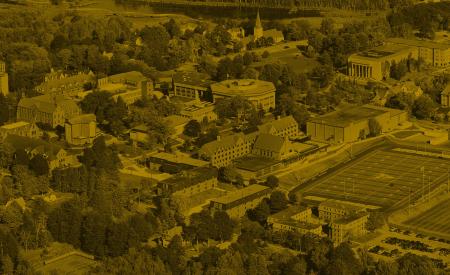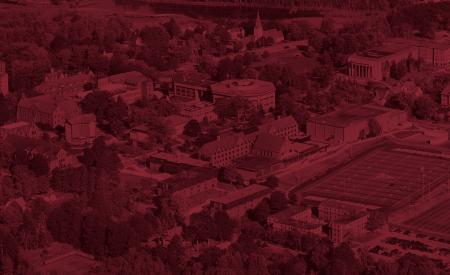Mount Allison students get head start as researchers
As a new political science master’s student, Michael Nolan attended a session designed to introduce graduate students to the process of qualitative social science research, such as conducting interviews and filing ethics research applications. At the session, Nolan was reminded of a Mount Allison advantage.
“I realized my peers were not aware of the ethics research process, while as an undergrad, I had already done six ethics applications and conducted roughly 50 interviews for various research projects,” says Nolan.

Nolan attributes his head start as a researcher to Mount Allison’s small class sizes and the accessibility of professors.
“It’s easier to approach your professors, build relationships with them, and get invited to participate in research they are doing,” says Nolan.
Dr. Mario Levesque, head of Mount Allison’s Department of Political Science, routinely involves his students in research projects and explains that at larger universities these opportunities are rare.
“Elsewhere, a faculty member’s research funding goes to PhD and master’s students and undergrads get whatever small tasks are left over,” says Levesque. “But at Mount Allison you get to build all these social science skills while an undergraduate and you get to work one-on-one with faculty members.”
Nolan worked on four research projects while a student in the Frank McKenna School of Philosophy, Politics, and Economics. He researched public policy as it relates to managing deer populations and instances of Lyme disease, examined outcomes from the Marshall decisions on First Nations fishing rights, and this past summer worked with Levesque on two projects — examining voting irregularities in the 2020 NB provincial election and researching the inclusion of disability studies in social work education. Nolan’s four research projects led to conference presentations, publications, media interest, and, in some instances, Nolan is continuing to work on the research and publish findings.
Many of these research opportunities were also made possible thanks to the generosity of donors. Nolan received research funding from the McKenna Scholars Program and the J.E.A. Crake Foundation and he was the recipient of student financial aid, including a McKenna School Upper-Year Scholarship.
Nolan is now putting his Mount Allison experiences and skills to good use in working on his graduate-level research on fiscal federalism and equalization. He says the lessons learned in all three areas of the Philosophy, Politics, and Economics Program (PPE) prepared him for this work — for example better understanding the economics behind fiscal policy while approaching the topic as a political science academic.
“PPE prepares you to think in a lot of different ways and sets you up to challenge yourself,” says Nolan. “The program and the research work I did at Mount Allison are invaluable.”
At Mount Allison, there are research opportunities available in most programs. Students can speak with their professors and program advisor to find out more about current research opportunities. There are also Independent Student Research Grants (ISRGs) available to students entering their final year of study. The deadline to apply for an ISRG is early February.



